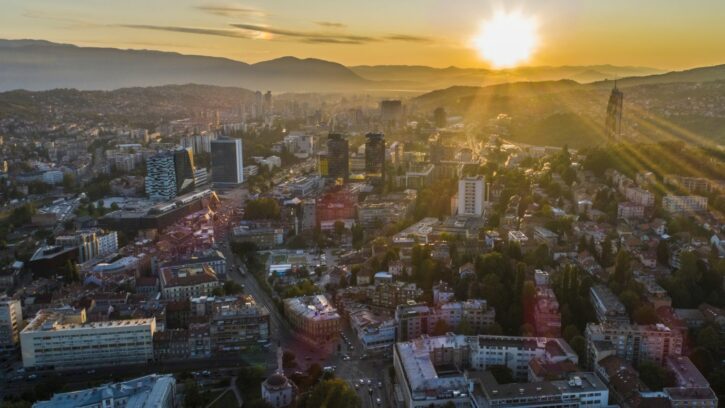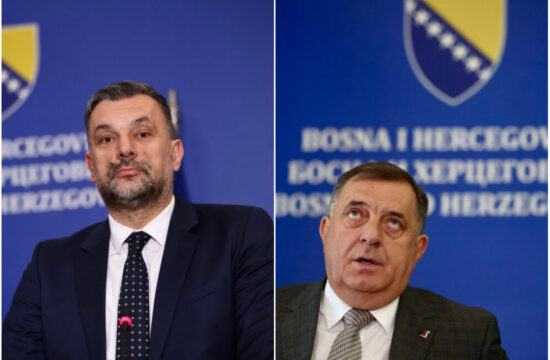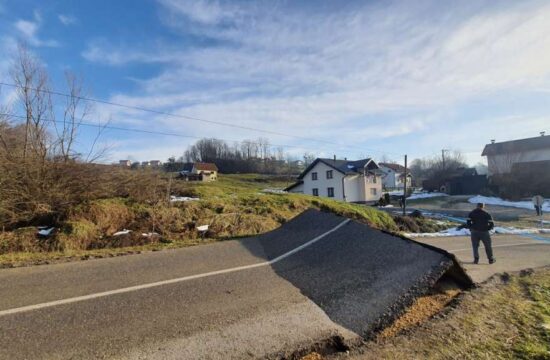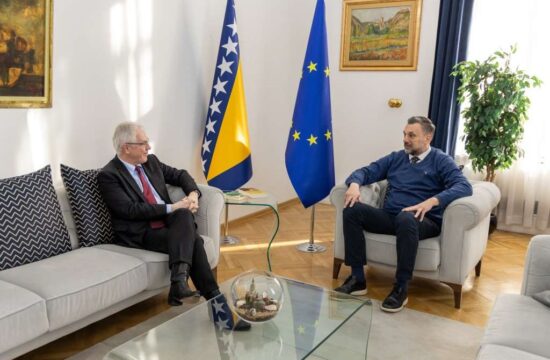
In 2019, Bosnia and Herzegovina (BiH) saw little improvement in protecting people’s rights, the state fails in practice to protect women from gender-based violence or hold most of those responsible for it to account, and media freedom remains compromised and the pace of war crimes prosecutions slow, said Human Rights Watch (HRW) in its latest report on Bosnia and Herzegovina.
“December 2019 marked 10 years since the Sejdić-Finci ruling by the European Court of Human Rights (ECtHR), which found that the Bosnian constitution discriminates against ethnic and religious minorities by not allowing them to run for the presidency. In the decade that followed, the ECtHR has found similar constitutional violations in three further cases, but the constitution still has not been amended” said the HRW's Report which can be read here.
In October, the ECtHR ruled that Bosnian authorities had discriminated against a resident of the city of Mostar on the grounds of her place of residence, by failing to hold municipal elections for 11 years because of a disagreement among its main parties about the voting system. The court ordered Bosnia to hold elections in Mostar within six months, this international watchdog recalled.
They also noted that the 2019 World Bank study examining Roma inclusion in the Western Balkans between 2011 and 2017 found only limited progress in improving access to education, employment, health, housing, and documentation for Roma in the country.
The Organization for Security and Co-operation in Europe (OSCE) between January and September 2019 registered 109 incidents of hate crimes—66.67 percent involving religion or ethnicity, the HRW said.
When it comes to the number of asylum seekers and migrants coming to Bosnia – the HRW Report notes that it had increased.
“Between January and August 2019, the state Service for Foreigners’ Affairs registered 18,071 new asylum seekers, 5,000 more than the same period last year. The most common country of origin was Pakistan, followed by Afghanistan, Bangladesh, Iraq and Syria,” the Report said. “ In the first of half of 2019, 17,165 people indicated an intention to seek asylum. Only 426 people actually applied during the same period.”
Accountability for War Crimes
The HRW Report said that a revised National War Crimes Processing Strategy to improve the process of allocating cases across courts has awaited approval by the Council of Ministers since February 2018, made no progress in 2019, slowing down the rate at which war crimes cases are prosecuted.
“In a positive move, in July 2019 BiH signed agreements with Serbia and Croatia to facilitate better cooperation in the search for missing persons from the 1990s wars. There was less progress in coming to terms with the past. In April, the Serb member of the Bosnian Presidency Milorad Dodik called the Srebrenica genocide a myth,” the Report warned.
Women’s Rights
the HRW noted that Bosnia indeed has an established legislative framework for tackling gender-based violence and human trafficking and institutional gender equality mechanisms, including in politics. Its implementation remained patchy or non-existent in 2019, according to women’s rights organization Kvinna Till Kvinna, leaving women vulnerable to domestic violence and employment discrimination, and underrepresented in political life, the report noted.
“The state response to gender-based violence remained inadequate, despite the ratification of the Istanbul Convention on violence against women. According to Kvinna Till Kvinna, police officers do not always inform women of their rights and available support, and perpetrators are just given a warning,” the HRW said.
Media Freedoms
Journalists continued to face interference with their work, the watchdog said.
“As of August 2019, Bosnian journalists’ association BH Novinari recorded 41 violations of journalists’ rights, including three verbal threats, eight instances of political pressure, six physical assaults, and five death threats. Most of the cases were reported to police and at time of writing, 15 were with the relevant prosecutor’s office. Although the number of solved cases has not significantly increased, BH Novinari reported police were more engaged and proactive with cases than in the past, and that other relevant state institutions communicated better regarding attacks on journalists,” the HRW Report said.
The full Report can be found at THIS LINK.




